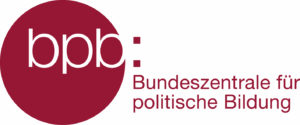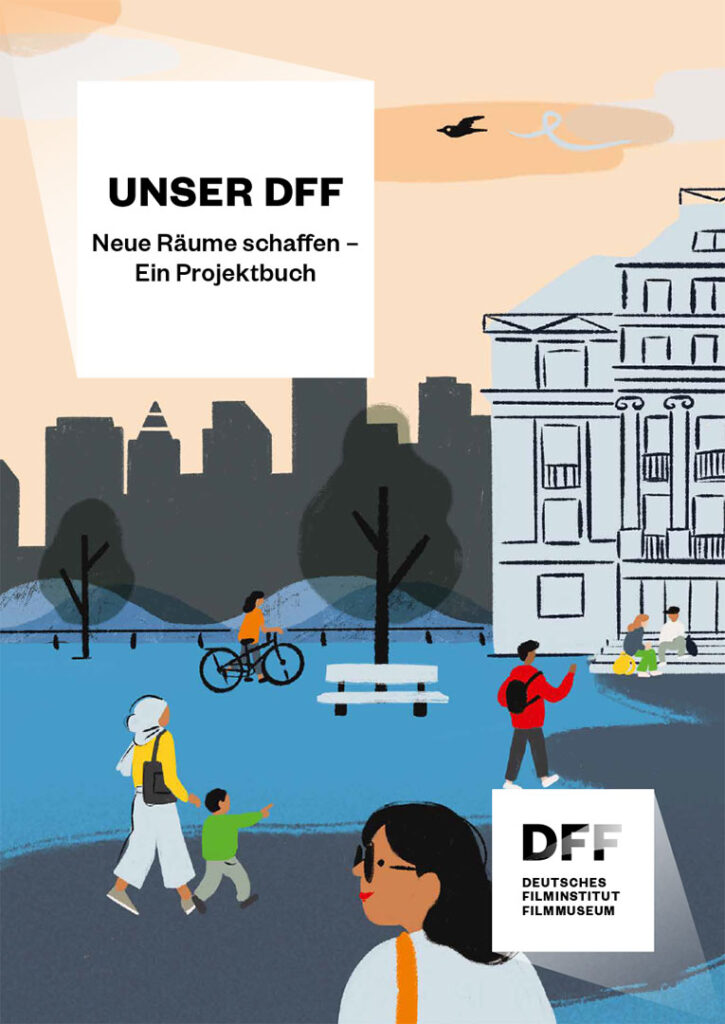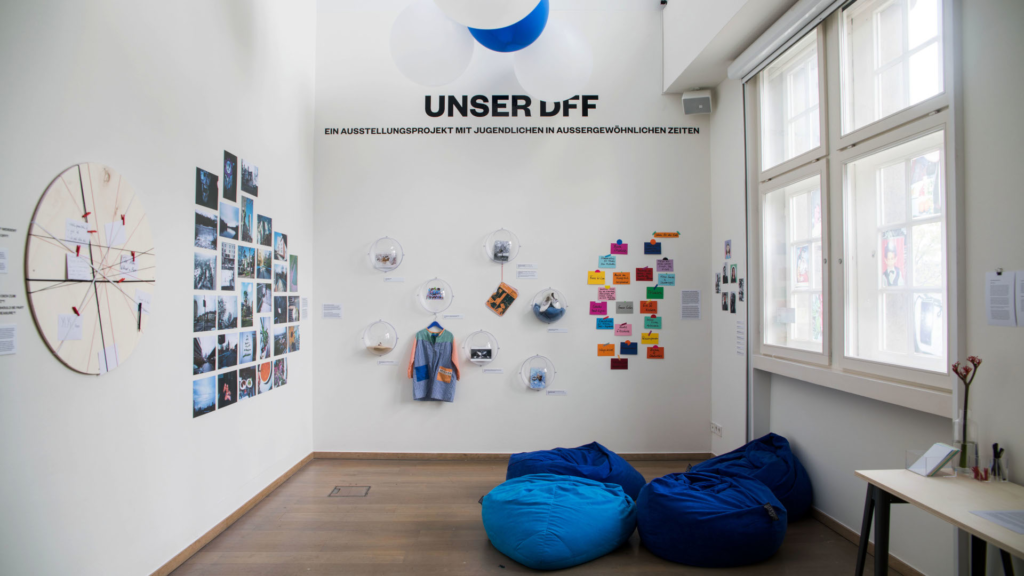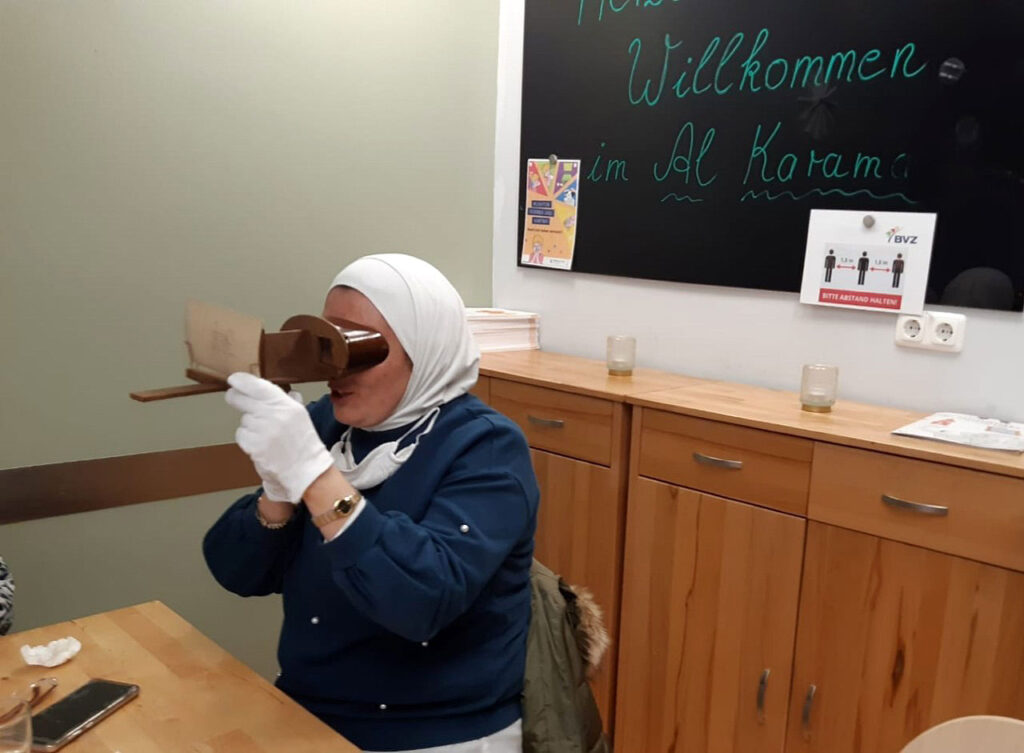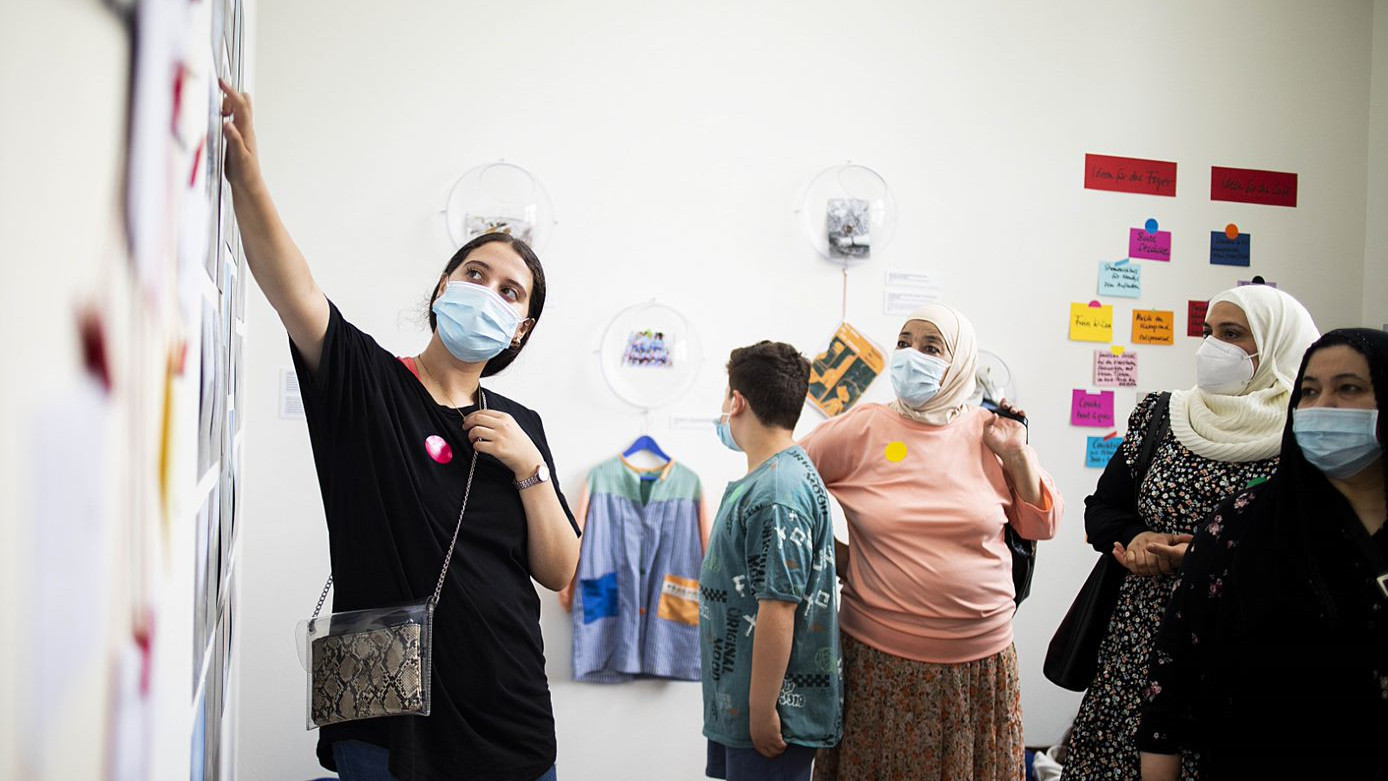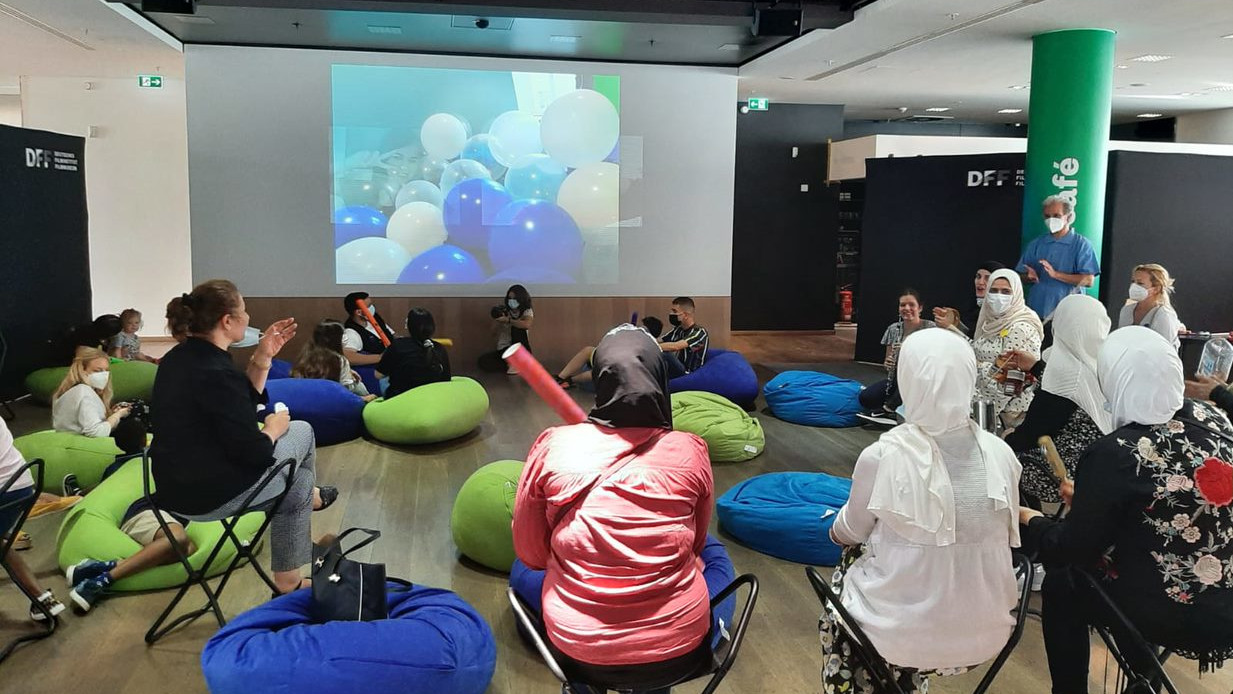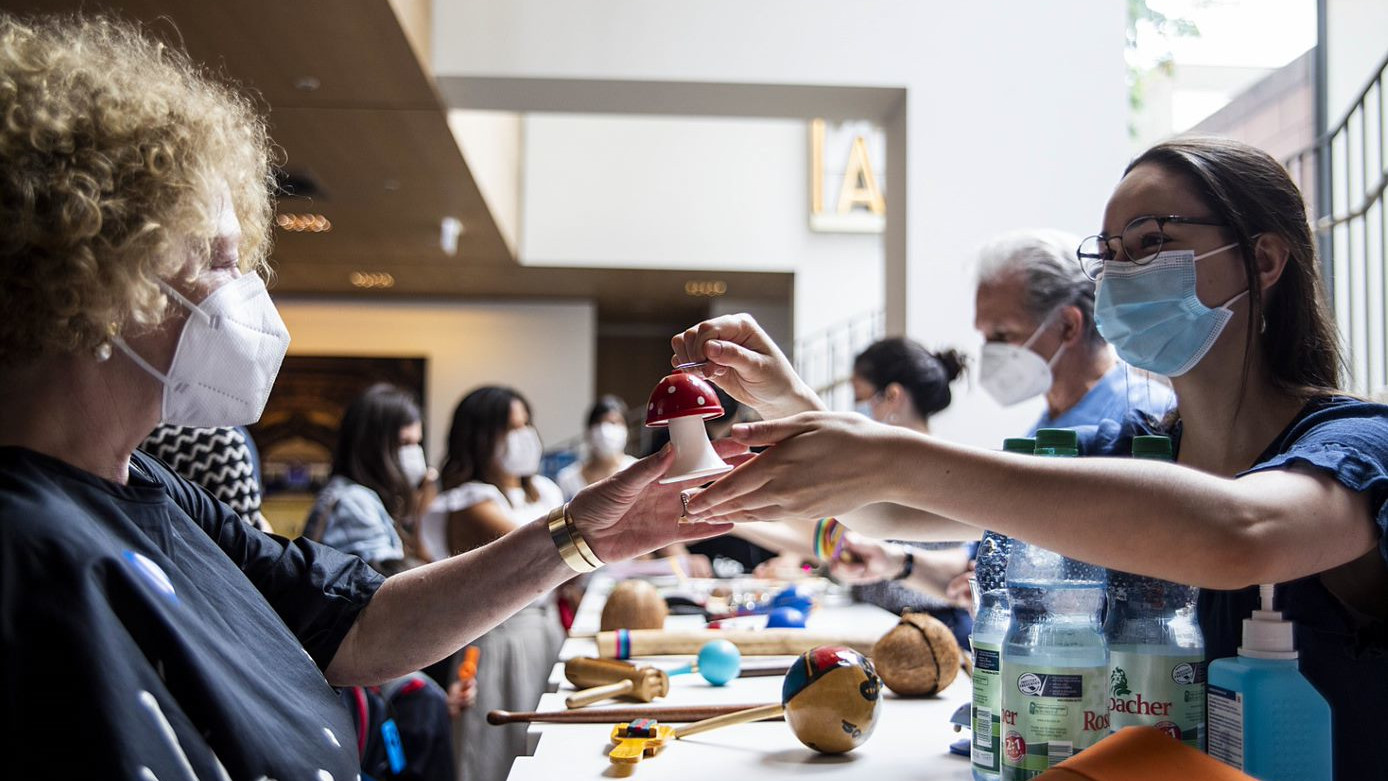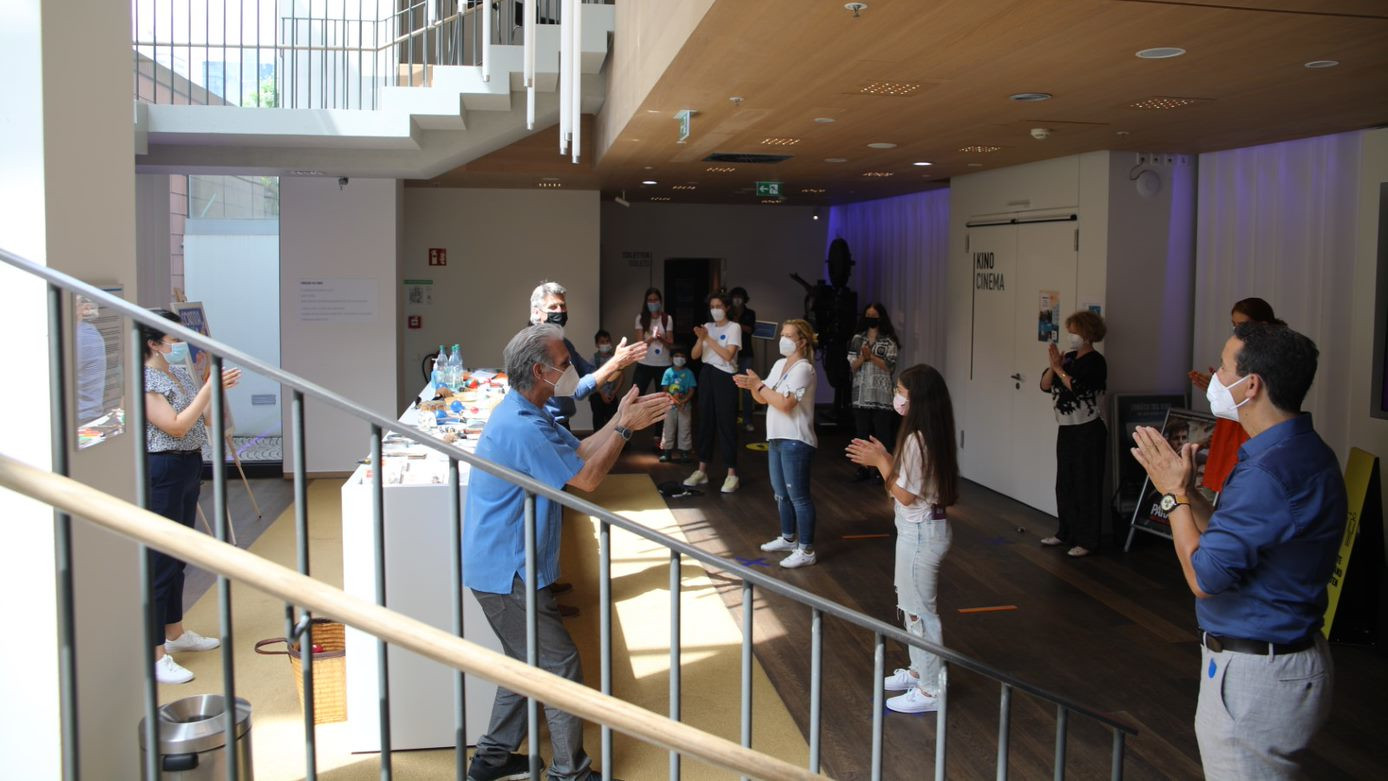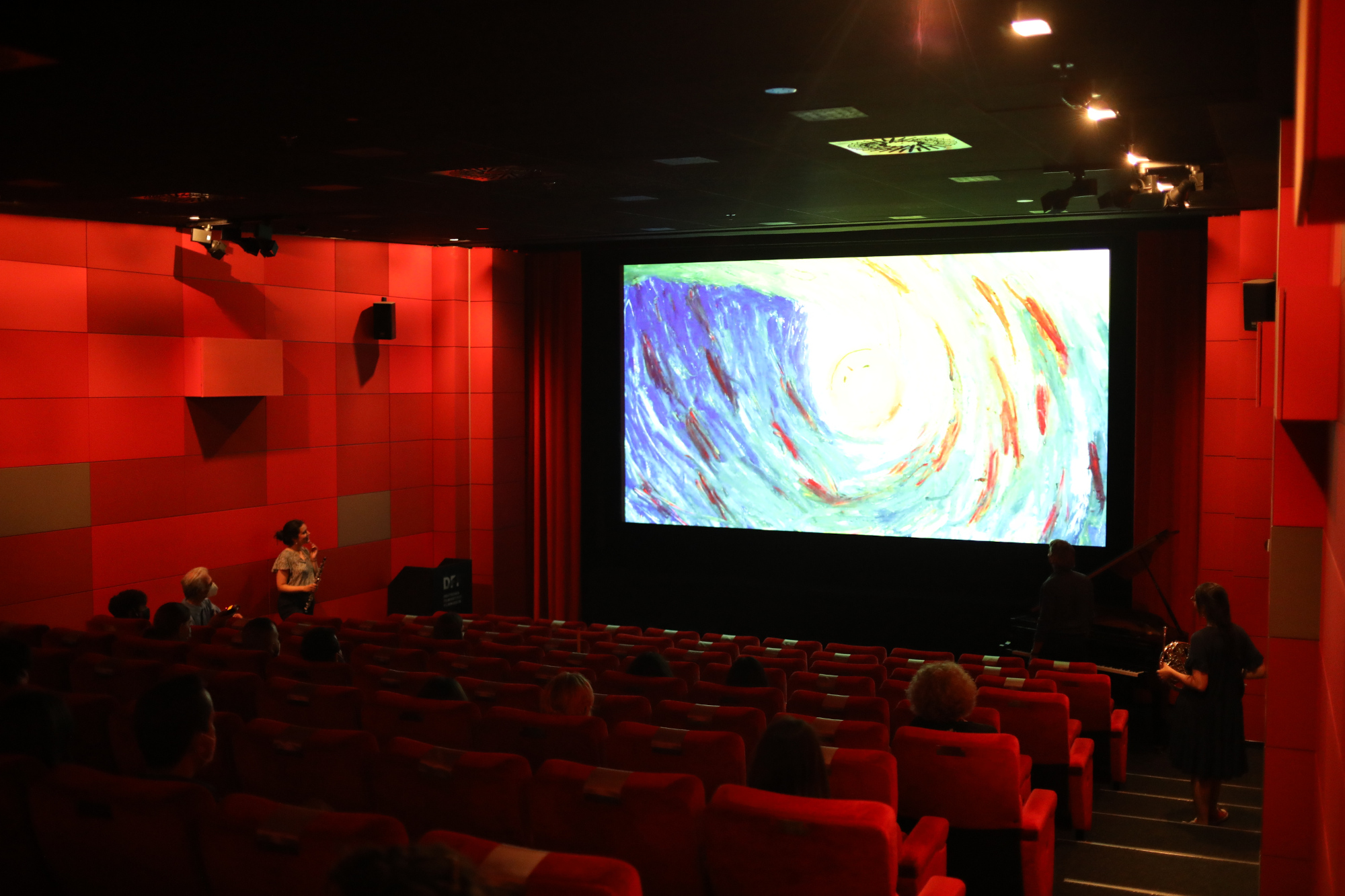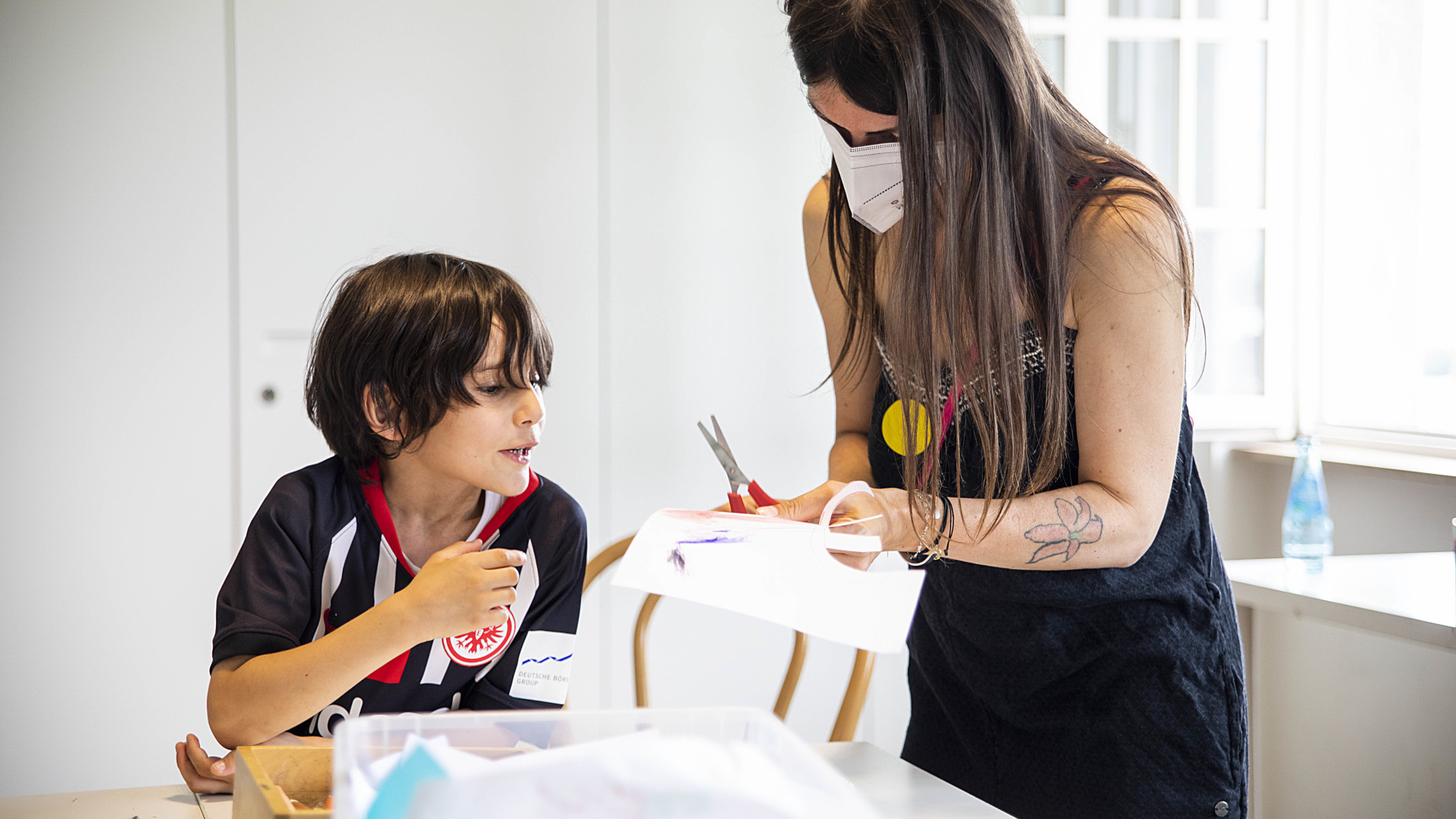How can the DFF further strengthen its engagement with the Frankfurt community and what changes are necessary to become a truly inclusive institution for all? Furthermore, how can a collaborative transformation process be successfully implemented? These questions marked the beginning of the intercultural pilot initiative “Our DFF”, which included a series of events, workshops and a project week. The focus was on fostering interaction and dialogue with partners from different Frankfurt neighborhoods. In response to the COVID pandemic, the project was adapted and moved into a digital format. Together with its partners, the project aimed to develop ideas and concepts for opening up the institution, with the intention of incorporating them as a permanent component of the DFF’s educational program.
Contact
Barbara Dierksen
Phone: +4969961220-309
Email: dierksen@dff.film
The publication Our DFF. Creating New Spaces serves as a record of the project and brings together the results of the collaboration with various project groups. It contains contributions in the form of texts and photographs by the participants. In addition, the project team has summarized the experience gained and the lessons that can be learned by other cultural institutions undertaking similar projects.
“Our DFF – An Exhibition with Seven Youths in Extraordinary Times”
During the Easter holidays 2021, seven young people from different schools participated in a digital project week. Together with the project team, which implemented the group’s ideas on site, the young participants developed an exhibition in the so-called “Luftraum” on the ground floor of the DFF. The central questions of the project served as a leitmotif: What do they want from the DFF, what interests them most, and what do they like less? And how should the DFF develop as an institution in order to be perceived as an open and accessible place?
The young participants selected their favorite personal items and created self-portraits for the exhibition. They also organized a section of photographs from a photography project in partnership with a group from the Al Karama Parent-Child Center. In this project, the women involved used disposable cameras to document their neighborhoods, favorite places, and significant possessions. Other project partners included Über den Tellerrand Frankfurt e.V. and MiA – Migrant Women Prepared for Employment. The exhibition also includes the written and photographic work of the MiA group.
The Frankfurt Film Treasure
As part of the project, the “Frankfurt Film Treasure” was created. This collection of 100 film titles was compiled through a survey of all project participants. It reflects the films that the city’s diverse residents consider culturally valuable and wish to preserve as part of their cultural heritage.
The “Frankfurt Film Treasure” is presented in the publication “Our DFF. New Spaces”.
In the DFF podcast “Alles ist Film”, project manager Barbara Dierksen provides insights into the concept of the “Frankfurt Film Treasure” and Frankfurt residents with an international background discuss their favorite films.
Closing event at the DFF
The project concluded on July 10, 2021 with a special event at the DFF. This event included a Zoom discussion on “Strategies for promoting intercultural openness in cultural institutions and the significant role of participatory approaches”. The event also included the launch of the publication “UNSER DFF: Creating New Spaces”. Participants from all groups involved in the project came together to celebrate the successful culmination of their collective efforts. They also had the opportunity to explore the DFF’s permanent exhibition and cinema, which some participants visited for the first time. During the event, the DFF organized guided tours in simple language, a creative workshop for children, and live musical accompaniment to silent films, a concept that emerged from a workshop conducted by the project group associated with Über den Tellerrand Frankfurt e.V.
Supported by:
